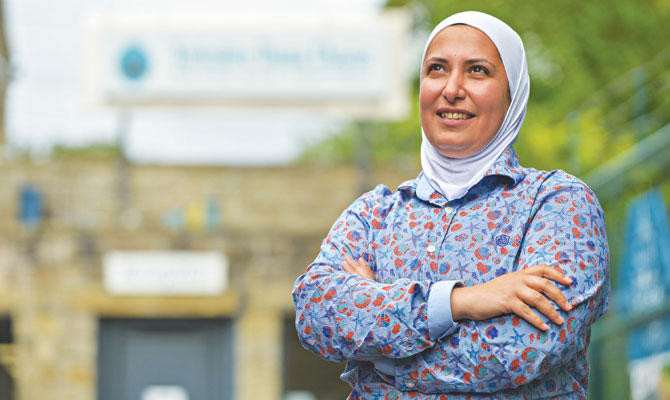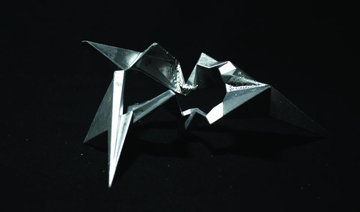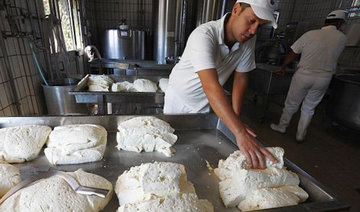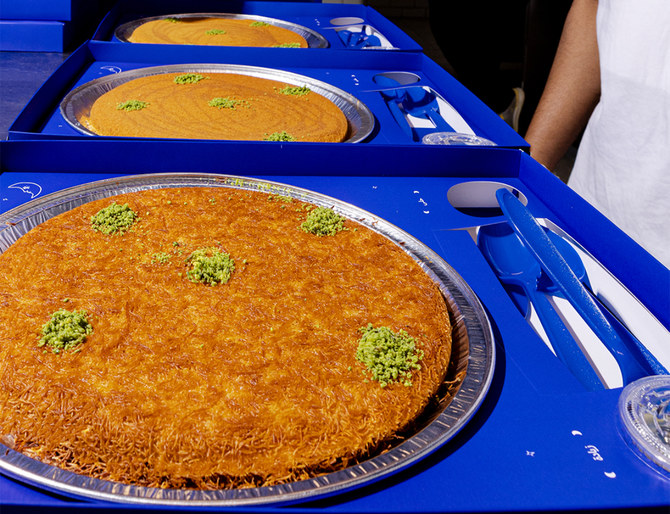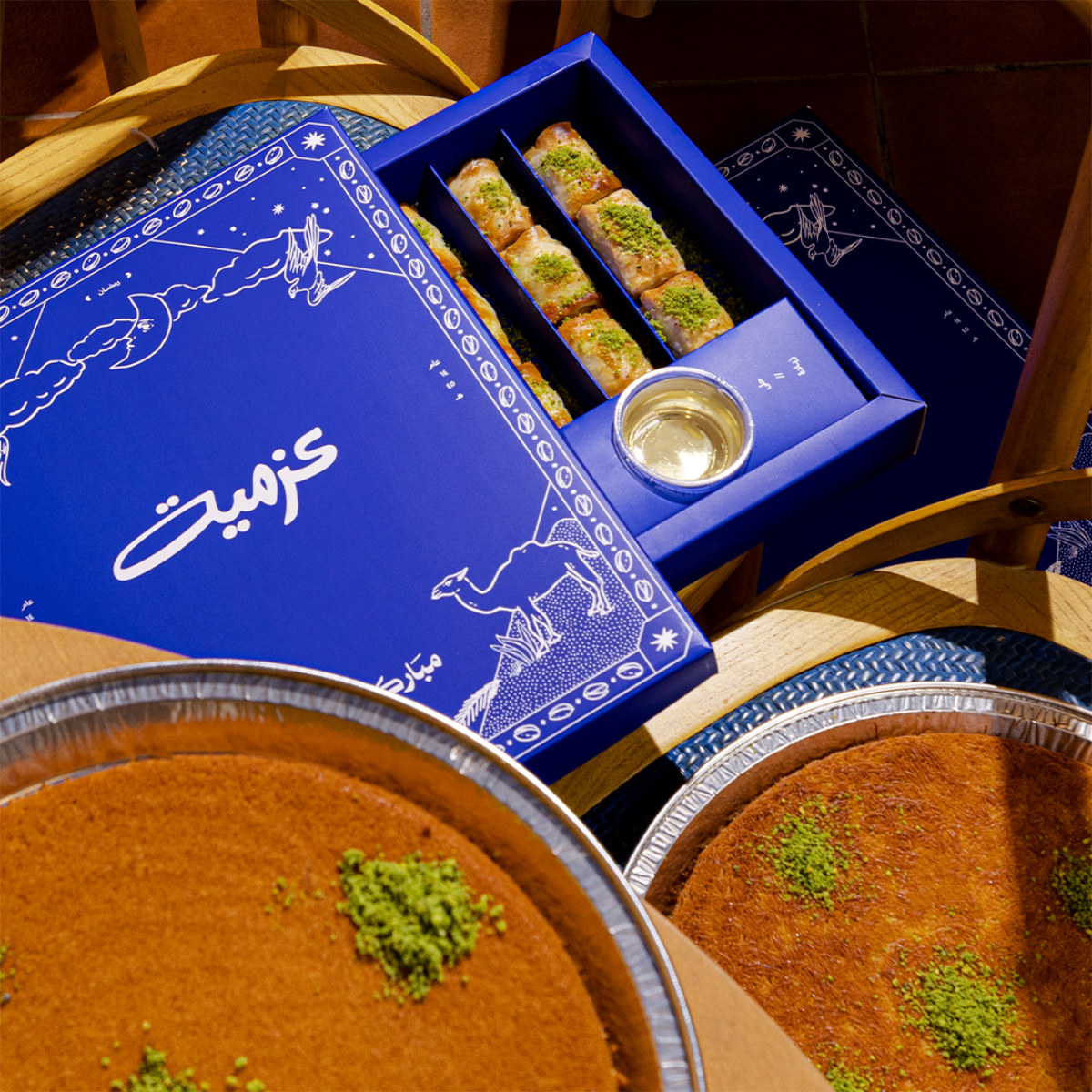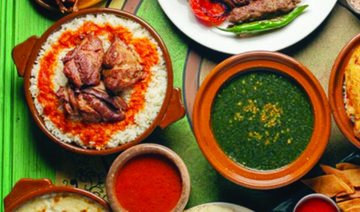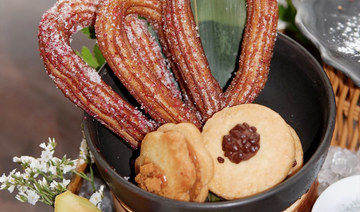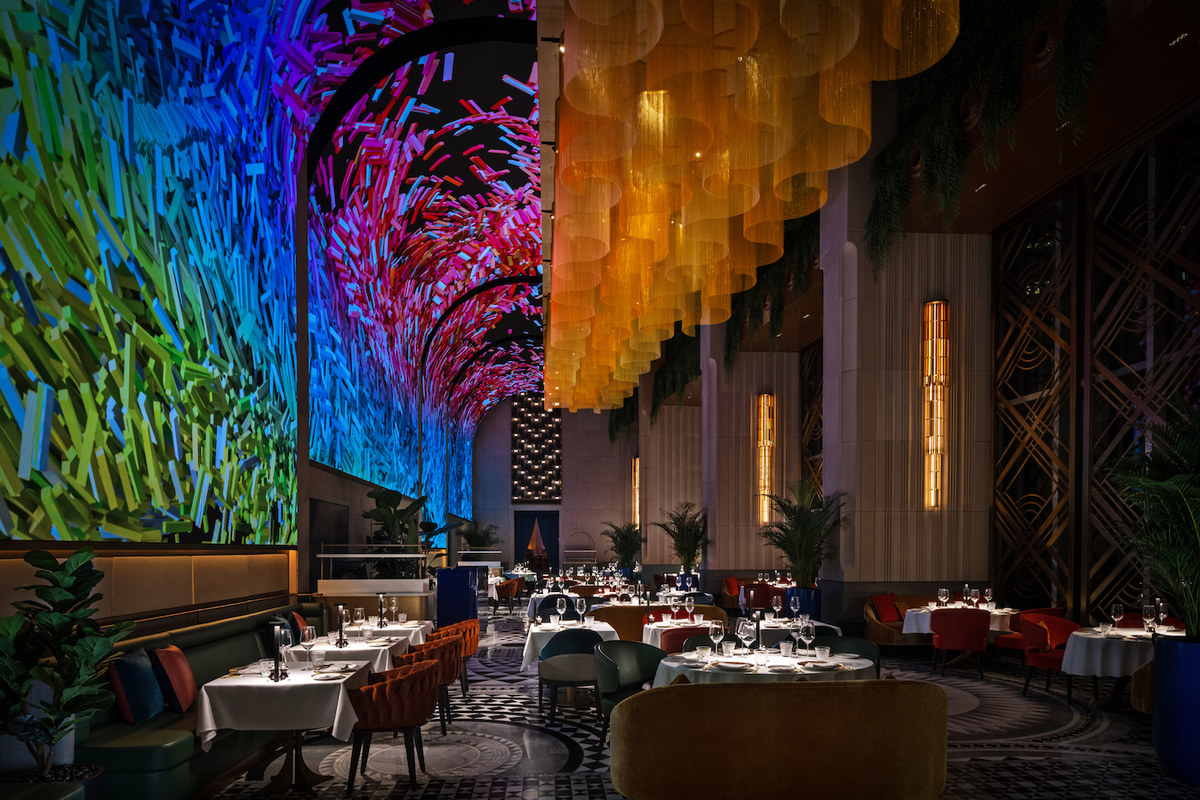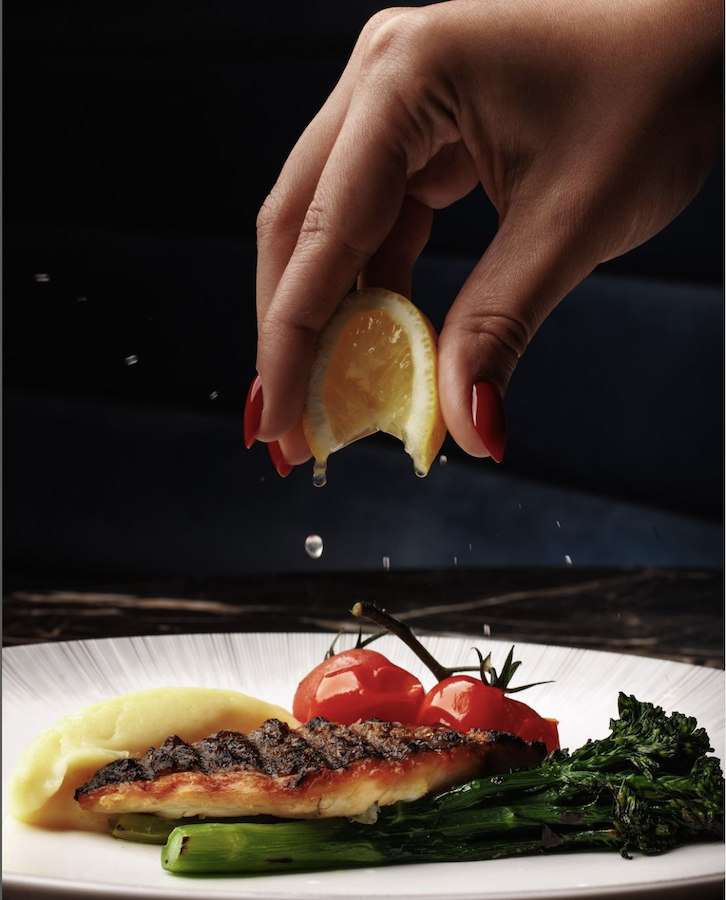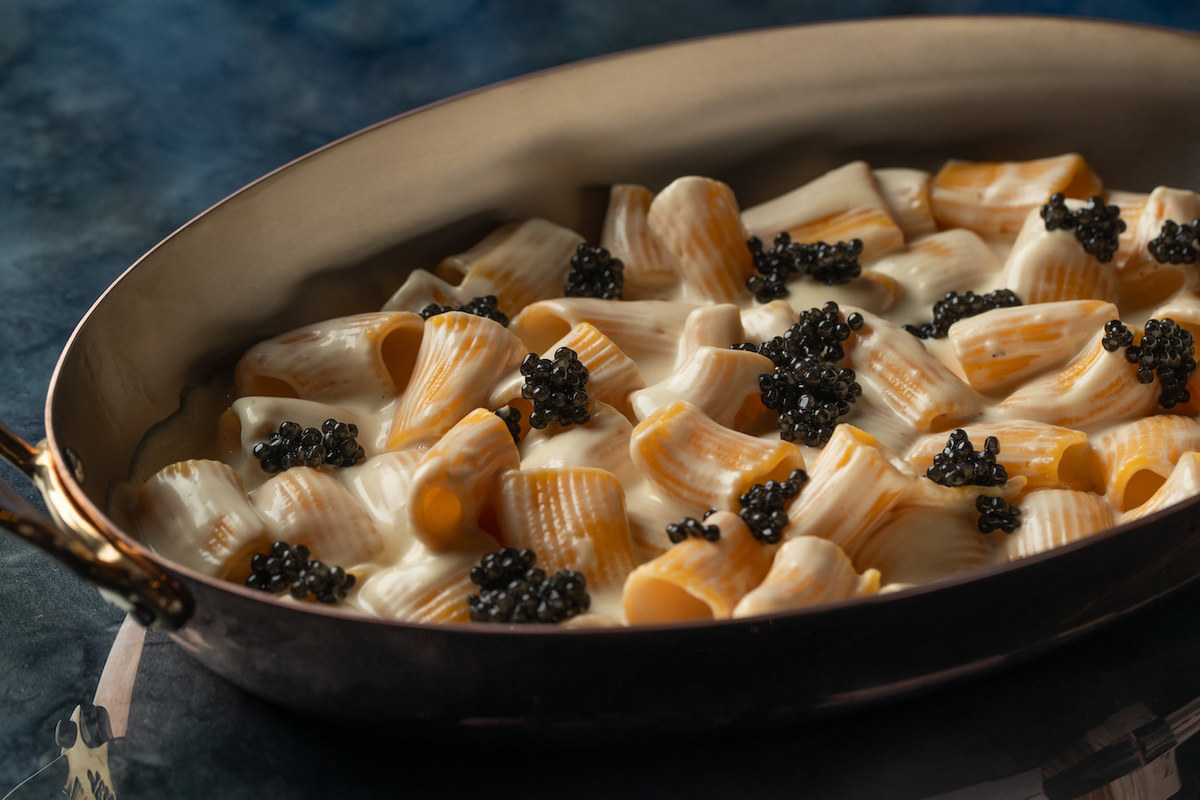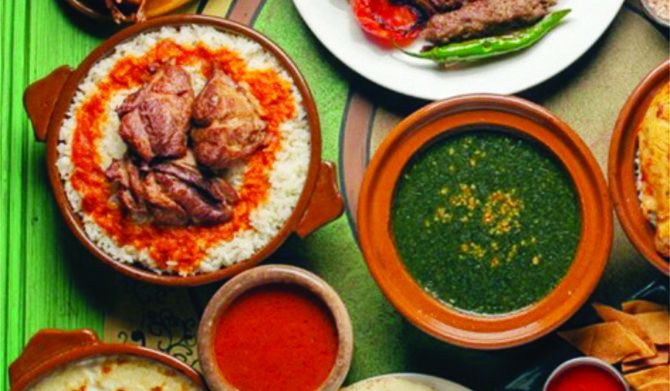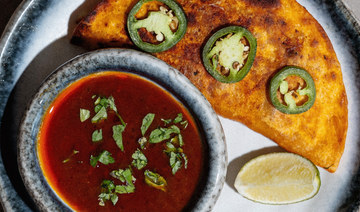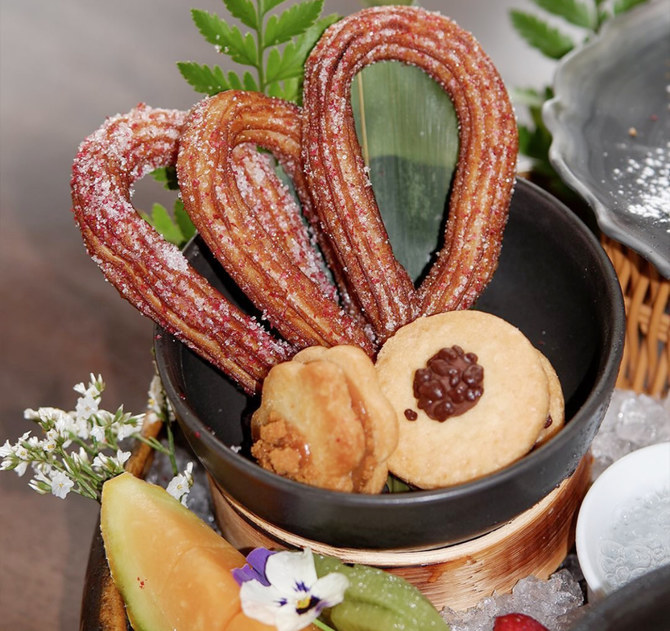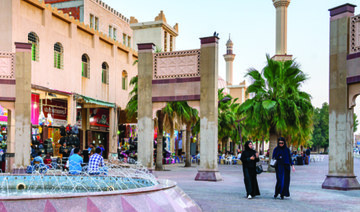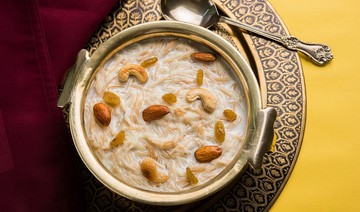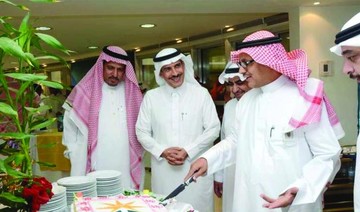YORKSHIRE, UK: This is a very cheesy story, in the best possible way. It is also a story about resourcefulness, determination and how to build a new life when an old one is lost.
It takes place in a small factory in northern England, where Razan Alsous, 34, a refugee from the war in her native Syria, is forging a reputation as a producer of top-quality halloumi cheese.
She founded her company, Yorkshire Dama Cheese (Dama being short for Damascus) in 2014, less than two years after arriving in England with her husband, Raghid Sandouk, 53, and their three children. Just four months later, Razan won a bronze medal at the World Cheese Awards. The following year she took gold.
Now branded Yorkshire Squeaky Cheese, her halloumi went on sale earlier this year in 40 branches of Morrisons, one of Britain’s biggest supermarket chains. It was an instant hit and now Morrisons want to stock it in 275 stores nationwide.
Sainsbury’s and Waitrose, the supermarket giants, also want Razan’s halloumi on their shelves. No wonder, then, that Yorkshire Dama Cheese is looking into acquiring more equipment and bigger premises to meet the increasing clamour for its products.
For a young mother-of-three with zero experience of the food industry to go from complete novice to prize-winner in a matter of months would be impressive enough if Razan had lived in Yorkshire all her life.
That she started a business in a foreign country, with unfamiliar laws and customs, and is succeeding, makes her story inspirational.
Being foreign, from Syria, and a Muslim, has barely provoked comment, she said.
“There was a taxi driver — an Asian — who asked me if I was Muslim. I said, ‘Look at me, I’m wearing a headscarf, of course I’m Muslim.’ And he said he thought I might be a nun.
“Generally, I find people are not focused on how I look. They focus on the product. They see someone who is working hard, trying to do something and they want to support you. It’s very positive. I love the personal contact I have with the farmers, who accepted me straight away. I see that England and Syria are quite similar. They are both old civilizations that value history. I feel I am with people who understand me.”
Until six years ago, the family enjoyed a comfortable, middle-class lifestyle with a home on the outskirts of Damascus. Razan, who has a degree in microbiology, was studying pharmacology at Damascus University. Raghid, an electronics engineer, owned his own company supplying quality control equipment to the pharmaceutical industry.
When the conflict began in 2011, they tried to suppress their fears, even as it began to affect their lives more and more.
“We couldn’t visit our family. Each time Raghid went to work I didn’t know if he’d be back. His warehouse was smashed up by armed gangs. There were people being kidnapped just for dealing with British companies,” said Razan.
Then, on July 23, 2012, a car bomb exploded outside the building where Raghid had his office.
“He called me and said, ‘I’m alive but everything is destroyed.’ All he could see was dust,” said Razan. Three days later, the family were on a plane out of Syria.
“My father didn’t want us to leave. He said everything will be all right, and if it had just been Raghid and me, we would have stayed. It was harder for Raghid because he had a business he had built up over 15 years, with 15 employees. I asked him to leave. I could cope with no electricity. I could cope with limited water. I could cope with everything except lack of safety for my children. You can’t just sit there and wait to die.”
The family came to the UK because Raghid had a multiple-entry business visa and they had connections in the country. Raghid’s grandfather used to travel regularly to Huddersfield, a wool-producing town, to buy cloth for his textile shop, and Raghid’s brother had settled there 30 years ago.
Although the couple clung to the belief that their stay would be temporary, Raghid’s brother advised them to apply for asylum. Razan was granted temporary permission to stay after five weeks. For Raghid, it took almost two years.
“At first, we felt we were on holiday. It was summer, people were relaxed,” said Razan. But with the Syrian pound plummeting in value, their life savings were quickly depleted. They could not get jobs as their qualifications were not recognized. Nor could they study to re-qualify. Razan picked up some translation work, but it was irregular. She hated “signing on” — applying for welfare benefits.
Razan hit on her business idea one day after a fruitless search for halloumi that tasted as good as the cheese that is a staple of family breakfasts back home in Syria. The shops stocked what she describes as “tasteless” halloumi, imported from Cyprus, and made with powdered milk.
“That’s when it struck me: I would make cheese,” she said.
In her research she discovered that the British were the biggest consumers of halloumi in Europe. Her brother-in-law, who owned a string of fast-food businesses, gave her the use of the kitchen in a defunct chicken shop, where she spent a year experimenting with recipes. She found the key ingredient right under her nose.
“Yorkshire milk. The quality is excellent — much creamier with a high percentage of solids,” said Razan. “In Syria, the best halloumi is made in springtime when the grass is new and green. But here the climate is more consistent for good pasture, so the milk is more consistent in quality.”
She mentioned her idea to an adviser at the local Job Center, who referred her to the Enterprise Agency. She was assigned a mentor who steered her through researching the market and drawing up a business plan before applying for a start-up loan.
She received £2,500 to be repaid within two years. The loan was not enough to buy all the equipment she needed, but the ever-resourceful Raghid adapted an ice-cream maker so that it heated the milk instead of cooling it, and converted an insulated fish tank into a fridge.
They began by selling to local delis and cafes. Razan spent her last £500 on the fee for an exhibitor’s stall at the Harrogate Fine Food Show. It proved to be a wise move.
“People loved the cheese and we met our first distributor. He said: ‘This is what we need in Yorkshire,’ and we are still working with him.”
Four months after beginning production, they entered the World Cheese Awards, held in the huge exhibition center in London’s Olympia. It was an eye-opener.
“We knew nothing about it. There were 2,750 different cheeses on display, big blocks of Cheddar … and we arrived with just a few blocks of cheese. We looked very silly,” said Razan. Her initial reaction was to turn and go home. But Raghid said they might as well stay and just enjoy it.
To their amazement, they won the bronze medal. “We were jumping around, shouting. I phoned all my family. We were overjoyed.”
The next year, they entered again and won gold. “It proved the first time was not a fluke. We really did have a good product that people like,” said Razan.
The walls and every spare surface of the office above the factory floor are now covered in awards. For the Queen’s 90th birthday in 2016, they supplied cheese for the British embassy party in Vienna.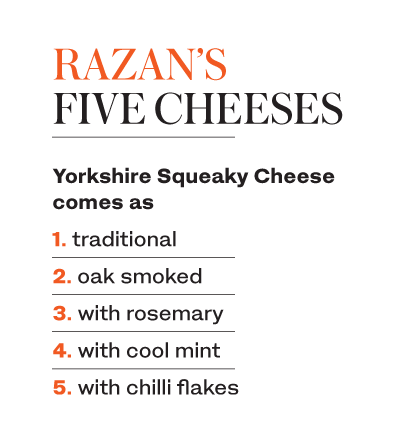
Razan and her halloumi have appeared on television and when he was prime minister, David Cameron nominated her as an ambassador for International Women’s Day in 2015.
Last year, Yorkshire Dama Cheese moved out of the disused chicken shop into their current premises on a small industrial estate. Princess Anne, the Queen’s daughter, came to open the new factory last year and stayed for lunch.
“She requested it, and she stayed almost two hours, much longer than her schedule,” said Raghid. “It was a proud day,” Razan said.
The 1,200 liters of milk collected daily from a local dairy farmer is turned into around 2,500 blocks of halloumi each week. The Yorkshire Squeaky Cheese brand came about because Cyprus was seeking Protected Designated Origin status for the halloumi name, a label granted by the EU to a small number of products. The name stuck.
“It works because the test of good halloumi is the squeak when you squeeze it, and also kids like it,” said Razan.
As well as five varieties of halloumi, they make labneh, also labelled “spreadable yogurt” for customers unfamiliar with the Middle Eastern name. The whey left over from making halloumi becomes ricotta cheese. Nothing is wasted and nothing is added, said Razan.
Weekends are spent at food fairs and farmers’ markets. Sales to restaurants, independent shops and online customers have “gone crazy” in the past six months.
They have now bought a house and the children — Angie, 9, Yara, 8, and Kareem, 6 — are happily settled in school. “They are Yorkshire kids now. They laugh at my accent,” said Razan.
Razan’s parents and siblings have followed her to Britain. Her father volunteers at the Buzz Project, running community beehives, where he is known by the nickname Mr. Honey.
Though it pains her to admit it, the prospect of returning to Damascus is receding. “I cannot close down because we have eight employees depending on us,” said Razan. “But I want my children to know where they came from and we will take them when it is safe.”
That’s not all they intend to take back to Syria.
“We aim to export our halloumi to Syria,” said Raghid. “With Yorkshire milk and Syrian know-how, we will make the UK the halloumi capital of the world.”


